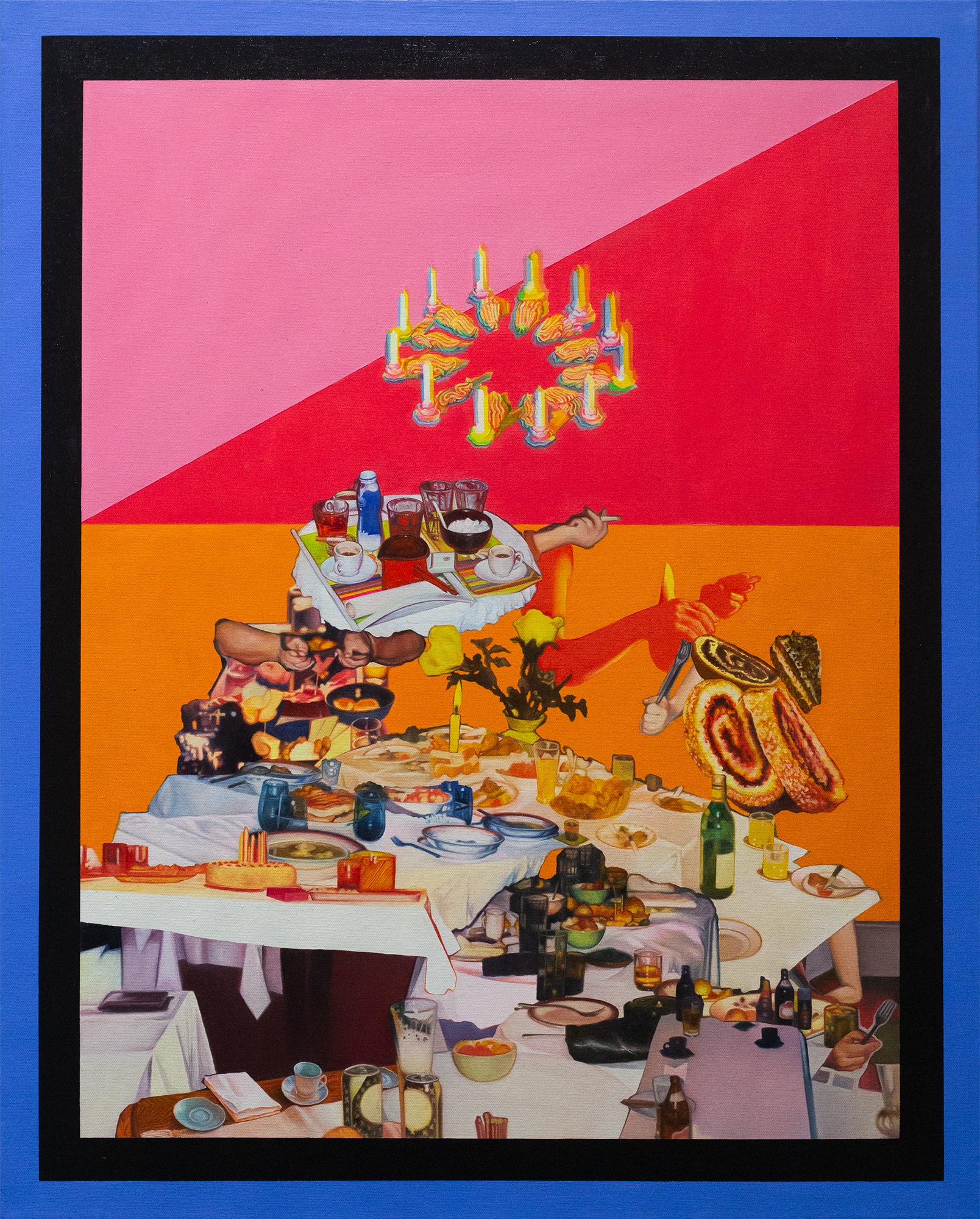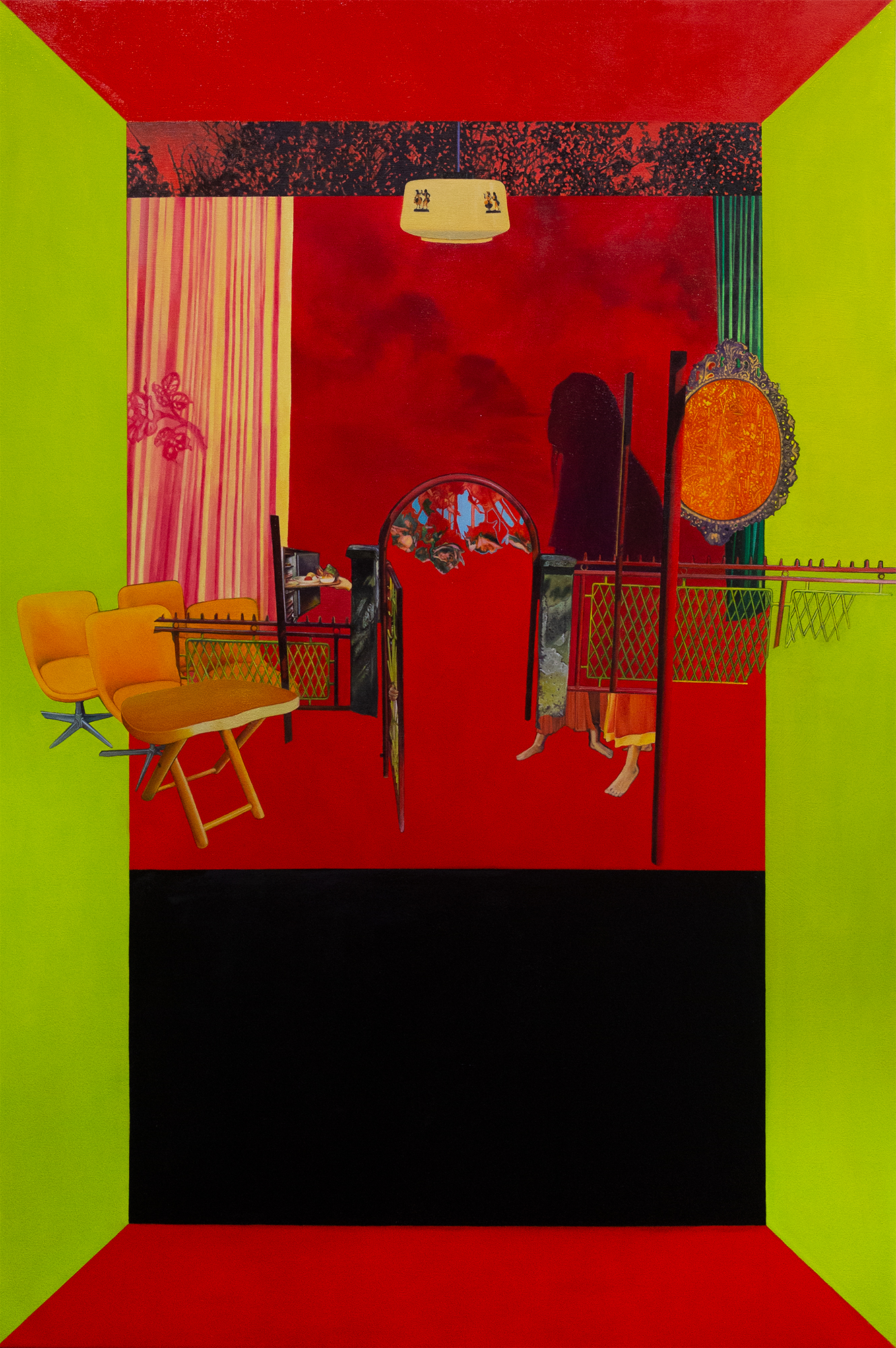
Sungazing
oil on canvas
I Want to Believe
oil and acrylic on canvas
And Tomorrow...
oil and acrylic on canvas
Slavimo
oil and acrylic on canvas
Ghost Story
oil on canvas
The Pink Wallpaper
acrylic on canvas
OR
oil on canvasThe impossible landscapes in Dark Humor dull the boundary between the real and unreal and act as uncanny resolutions for in-between statehood. Relying on the aesthetics of film, print, and set design, the paintings reflect makeshift utopian worlds – forms of nation-building in which vaguely familiar imagery acts as both a look backward and forward.
Maybe it is a good thing for us to keep a few dreams of a house that we shall live in later, always later, so much later, in fact, that we shall not have time to achieve it. For a house that was final, one that stood in symmetrical relation to the house we were born in, would lead to thoughts—serious, sad thoughts—and not to dreams. It is better to live in a state of impermanence than in one of finality.
— Gaston Bachelard, The Poetics of Space